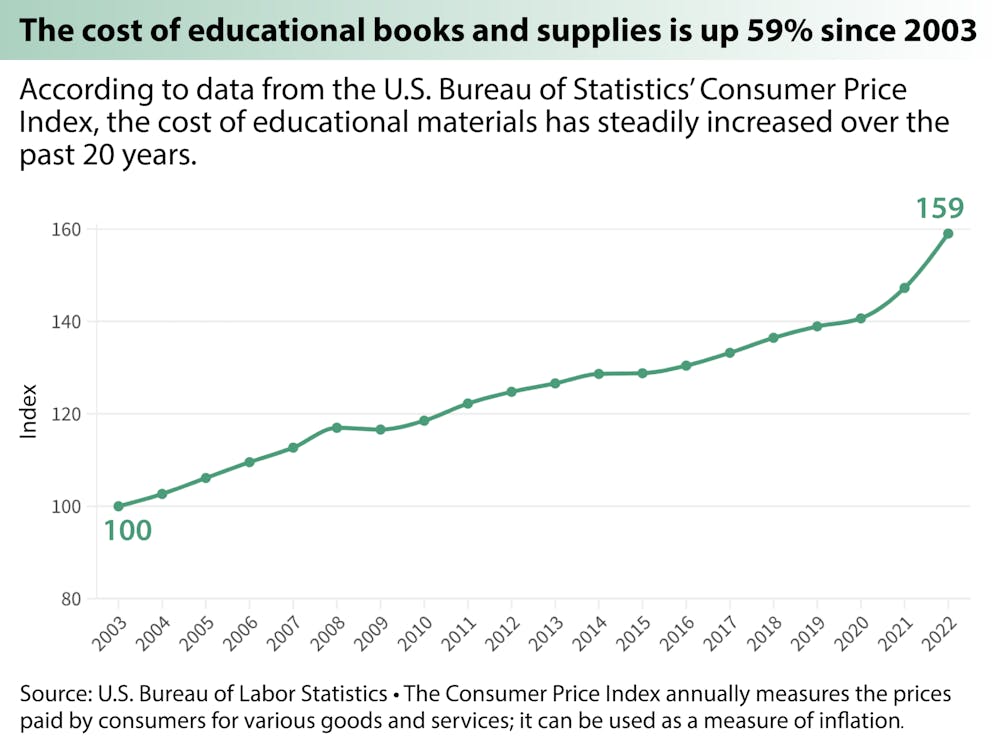Jada Edmark, a junior nursing student at UNC, said she is already paying $600 for this semester’s textbooks, and two of her classes have yet to announce their required materials.
According to a 2018 survey conducted by textbook publishing company Cengage, 30 percent of students avoided traveling to see their families and 43 percent of students skipped meals during the semester to offset their coursework expenses.
The steep prices of textbooks and educational materials could be caused by a number of economic factors, Chris Roark, an assistant teaching professor of economics at UNC, said. These factors include inflation, high demand and supply-side shortages on the materials used to make textbooks, he said.
Roark analyzed data from the Federal Reserve Bank and discovered that the average price of academic materials has increased by 106 percent since 1993.
“Most of that rise, though, occurred prior to 2016,” he said. “Since 2016, they’ve kind of stayed stagnant, so whatever was driving textbook prices is not necessarily related to the current inflationary period.”
Despite the disconnect between current inflation in the United States and the relative stabilization of textbook prices since 2016, some students still believe textbooks are unusually expensive.
One course, Nursing 351: Pathophysiology/Pharmacology Across the Lifespan, requires two books that cost over $100 each at Student Stores. Nursing students like Edmark could pay more than $200 for this single course.
In his research, Roark found that the price of textbooks increased more quickly than the growth of overall inflation in the United States between 2003 and 2023.
“If I go back over that same period, if we go back to July or August 2003, we can see that [inflation] has not grown by over 100 percent,” Roark said. “So prices by themselves have not been keeping up with the price of textbooks, which is why textbooks are seeming so expensive.”



